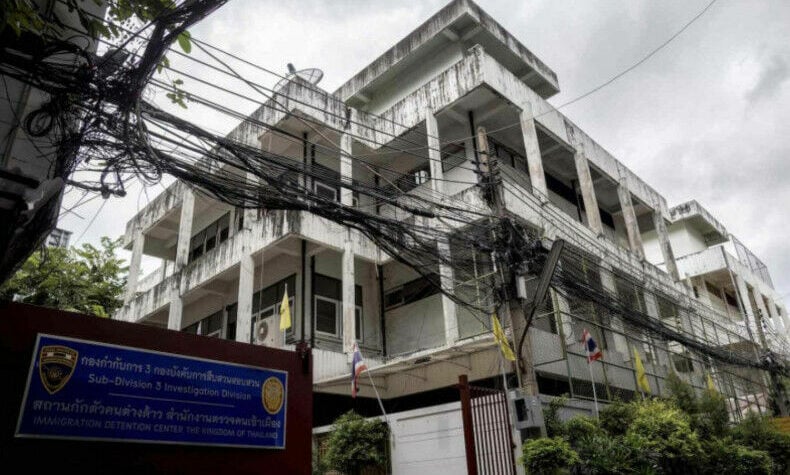
A group of Uyghur men, detained in Thailand for more than 10 years, claim that the Thai government is planning to deport them to China, where they risk abuse and torture, according to activists. Senator Angkhana Neelapaijit, former head of the National Human Rights Commission, has urged Prime Minister Paetongtarn Shinawatra to clarify any plans regarding their deportation.
The Associated Press (AP) has obtained a letter from 43 Uyghur men held at the Suan Phlu immigration detention centre in Bangkok, pleading to halt what they describe as an imminent deportation threat. The letter warns of imprisonment and possible loss of life, urging international human rights organisations to intervene before it is too late.
A decade ago, Thailand emerged as a route for Uyghurs escaping repression in China and aiming to reach Turkey, a traditional supporter of Uyghur asylum seekers. The detained group in Bangkok were initially part of a larger group of approximately 350, arrested near the Malaysia border in March 2014.
In July 2015, about 170 women and children from this group were released to Turkey. Subsequently, 109 individuals, mostly men, were deported to China, and their current whereabouts are unknown.
The remaining detainees were kept in Thailand’s immigration detention, with at least 12 escaping and five dying in detention, including two children.
Five of the asylum seekers received prison sentences for a 2020 escape attempt, while 43 remain held without charge under harsh conditions at Suan Phlu. They are denied communication with families, lawyers, or other detainees.
Uyghur deportation
The National Human Rights Commission reported in 2023 that Thai officials have no plans to release the Uyghurs, as Thailand is not a signatory to the 1951 UN Refugee Convention.
Under Thai law, the detention of Uyghurs is considered a national security issue managed by the National Security Council (NSC), preventing access to the National Screening Mechanism that allows refugees to live in the country.
Immigration police claim they are trying to care for the detainees as best as possible. Recordings obtained by AP show that on January 8, Uyghur detainees were asked to sign voluntary deportation papers by Thai immigration officials, causing alarm due to similarities with documents signed by those deported to China in 2015. The detainees refused to sign.
Three individuals, including a Thai MP, have indicated recent government discussions about deporting Uyghurs to China, although no official directive has been issued. Two sources suggest that the timing coincides with the 50th anniversary of diplomatic relations between Thailand and China.
They also believe Washington’s response might be muted with the incoming administration of Donald Trump.
The Thai and Chinese foreign ministries have not responded to AP’s requests for comment. China labels the Uyghurs as jihadists without presenting evidence, while activists and rights groups insist the men are innocent and face persecution, imprisonment, and possibly death if deported to China.
All Uyghurs detained in Thailand have submitted asylum applications to the United Nations High Commissioner for Refugees, verified by AP. However, the UN agency has been barred by the Thai government from visiting the Uyghurs, reported Bangkok Post.
A non-governmental organisation report from May last year indicated that the UN agency declined unofficial Thai requests for assistance due to concerns over angering China. The UNHCR did not respond to requests for comment.
The story Uyghur detainees in Thailand fear imminent deportation to China as seen on Thaiger News.
